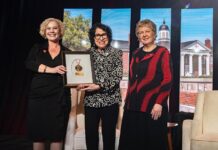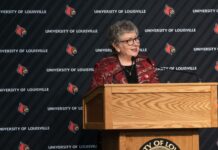LOUISVILLE, Ky. – The American Heart Association has named Roberto Bolli a winner of the 2008 Distinguished Scientist Award at its 2008 Scientific Sessions, held this week in New Orleans.
Bolli is professor of Medicine, chief of the Division of Cardiovascular Medicine, director of the Institute of Molecular Cardiology and vice chair for research in the Department of Medicine at the University of Louisville. He holds the Jewish Hospital Distinguished Chair in Cardiology and is a Distinguished University Scholar.
The Distinguished Scientist Award recognizes individuals who have made major, independent contributions to cardiovascular and stroke research. Past honorees include several scientists who have also been awarded the Nobel Prize in Physiology or Medicine.
Awardees undergo a rigorous, competitive selection process focused on the impact of their research in the field, the originality of their work and their leadership in changing the field as independent investigators.
“We congratulate Dr. Bolli as he becomes a member of a very elite fraternity in the field of cardiovascular research — this is a well-deserved award,” said UofL Dean Edward Halperin.
“There is really no way to overstate how richly Dr. Bolli has contributed to the world’s scientific knowledge of the heart,” said Kathy Renbarger, metro vice president for the American Heart Association in Kentucky.
“The Distinguished Scientist award goes to a select few investigators — those at the very top of their class — and we are pleased to recognize him as a worthy recipient,” said Renbarger.
For the past three decades, Bolli’s research has focused on preventing the damage that occurs during heart attacks. He has discovered the mechanism of a powerful protective phenomenon called preconditioning, in which heart muscle exposed to brief periods of stress becomes resistant to the tissue death that might be caused by a heart attack. He was instrumental in proving that oxidative stress can “stun” the heart — a breakthrough that brought the role of antioxidants to the attention of the medical community worldwide. He is currently investigating the use of stem cells from a patient’s own heart to repair areas damaged by a heart attack.
Under Bolli’s direction, UofL’s Institute of Molecular Cardiology was recently awarded $11.6 million from the National Institutes of Health (NIH) to establish a center of excellence in diabetes and obesity research. This grant brings the Institute of Molecular Cardiology’s NIH research funding total to more than $62 million over the past decade.


























